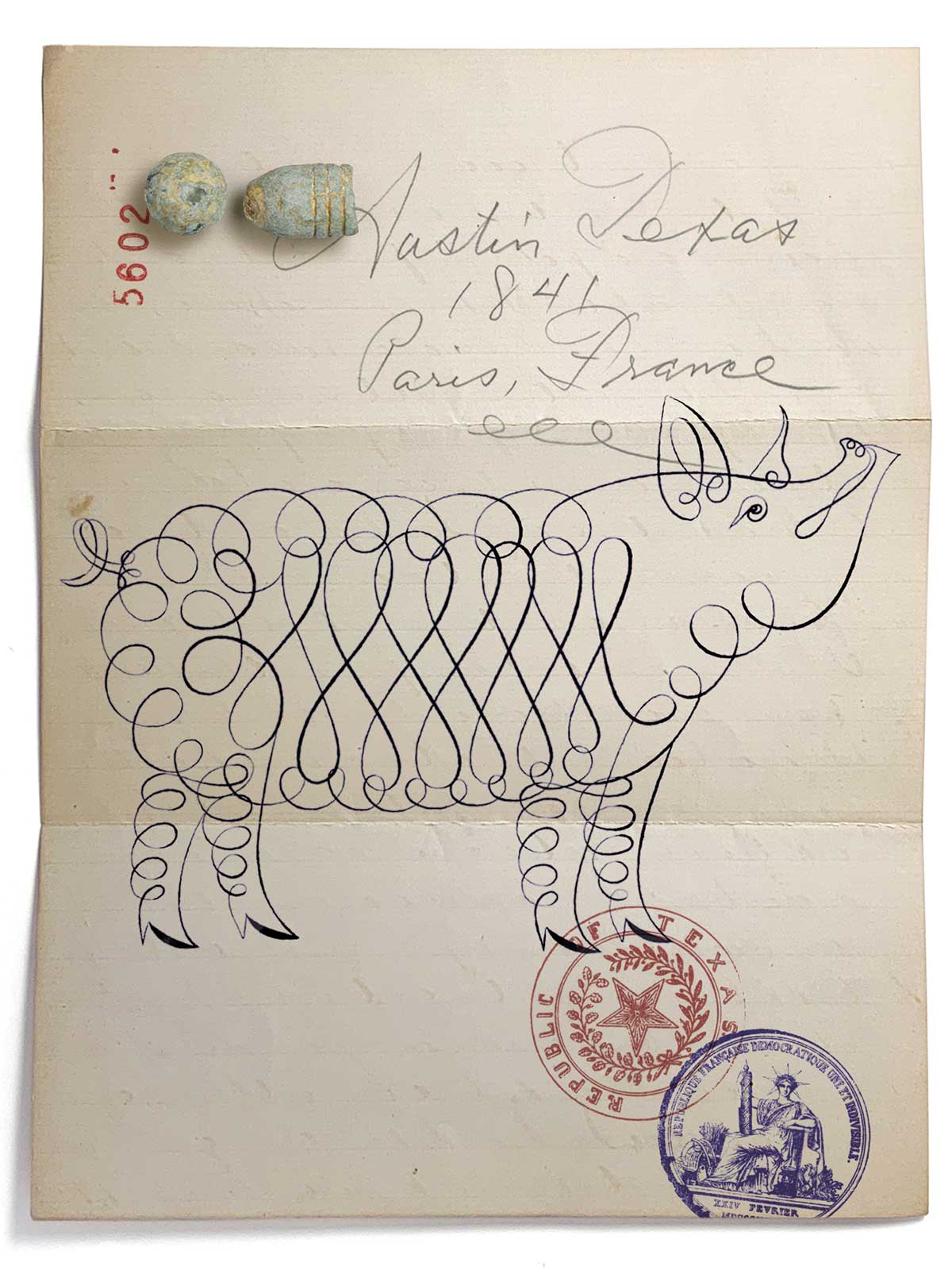After securing independence at San Jacinto, Texas was an independent country but one with no money and a shaky government. With no military force to secure its vast territory, Texas needed friends on the international stage and needed them quickly.
Texas turned first to the United States. Just months earlier, Stephen F. Austin had written, “We ought to get united to the United States as soon as possible.”
Listen to Author W.F. Strong Read This Story
Visit Texas Standard for more Texas stories (most of which are true).
Though the U.S. was not ready to pursue annexation, it was the first country to formally recognize the new sovereign nation. Congress made that move because it feared Britain or France might gain an inside track to the wealth of Texas.
The next country to recognize Texas was France. A commercial treaty was signed September 25, 182 years ago, and it established import duties on Texas cotton in France and reduced import duties on French wines, brandies and silks in Texas ports. The French Legation was opened in Austin, and the Texas Legation was opened in Paris.
This recognition from France was of enormous significance because most European countries saw the Texas Revolution as internal unrest within Mexico and believed that Santa Anna might crush the rebellion and reclaim the wayward state.
Once recognized internationally, Texas needed support for its banking system. In 1841, Gen. James Hamilton, the Texas commissioner of loans, walked into a French minister’s office in Paris and asked for a $5 million loan. The minister asked if he had any collateral, and the Texan said, “a territory as big as the kingdom of France.”
At the time Texas was actually about 50% larger than France. It looked like this loan would sail through the French bureaucracy. Then some Texas pigs caused an international incident.
Bullock caught the servant outside the legation, beat him up and threatened to do the same to Saligny. The Frenchman cut off diplomatic relations with Texas before traveling to New Orleans. A year later, he returned to his post, but the pig war had effectively killed the loan.
Even so, Saligny’s glowing reports of the unfathomable wealth and prosperity for which Texas was destined fueled France’s interest in the nation.
By keeping close ties with Texas, France wanted to make a grab at the last foothold available for it in North America. Negotiations for a French colonization and stationing of 30,000 French troops along the Texas frontier continued unconsummated until Texas was annexed by the U.S. in 1845.
France sacked Saligny for his ineptitude, and the trouble was all traced back to those pigs. As one French minister said of Saligny, “We can make mistakes, but we can’t afford to look ridiculous.”



